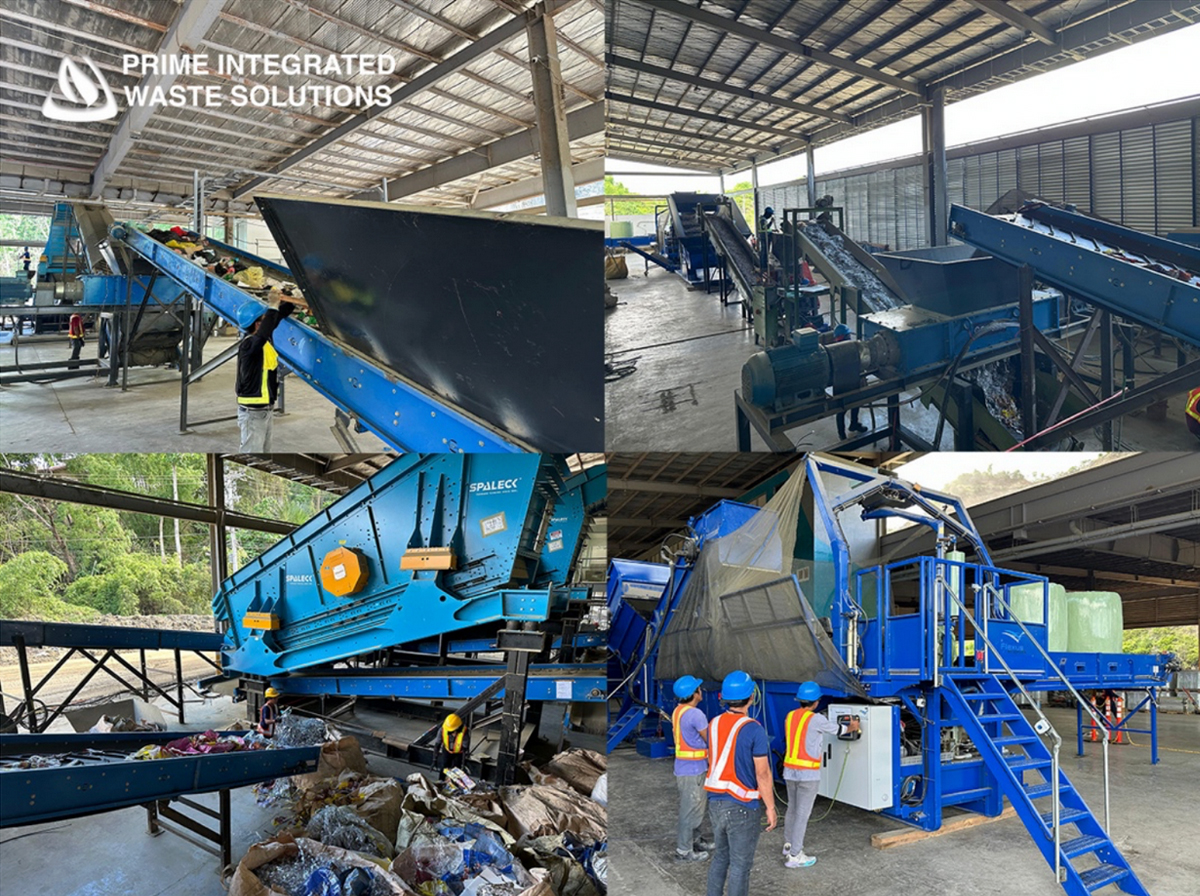
PHOTO collage of Prime Integrated Waste Solution’s (PWS) materials recovery facility in Cebu City which PWS said were accurate images that would counter false information from a landfill operator that included photos taken in Indonesia. PHOTO FROM PWS
A waste management subsidiary of Enrique Razon-led Prime Infrastructure decried what it said was “malicious disinformaton” against it being spread by a landfill operator.
In a statement, Prime Integrated Waste Solutions (PWS), subsidiary of Razon’s Prime Infrastructure, said the disinformation was made at a recent press conference by the landfill operator.
One of the wrong pieces of information presented by the landfill operator was a photo of supposedly a PWS facility in Cebu City, claiming the operations of PWS there were “like Payatas.” The photo presented at the press conference by the landfill operator was taken in Indonesia.
“We are currently evaluating our options with regard to pursuing legal action for potential defamation,” said PWS in the statement.
It said PWS uses a high-tech process to sort, segregate, and process waste based on short-term and medium-term usage.
“We commit to recover and recycle 80 percent to 90 percent of total waste received in our facility, with residuals as the only items to be baled and stored with potential to be used in the future,” the PWS statement said.
It said its materials recovery facility (MRF) in Pampanga province will run four lines with a total capacity of up to 5,000 tons per day.
“These lines also account for redundancy and unforeseen surges in waste,” said PWS.
Each line in the Pampanga MRF, the company said, is composed of magnetic separators, vibrating sieves, air density separator and boiler system which can handle up to 2,000 tons of garbage in a 24-hour operation.
“Municipal solid waste composition is heterogenous with certain ranges for specific categories,” PWS said.
PWS said it was possible to process at least 80 percent of incoming waste in the Pampanga MRF.
“Our facilities—both in Cebu City and Pampanga—will continue to optimize and upgrade as they operate and understand waste streams over time,” PWS said.
It said its operations are in line with promoting a circular economy which enables the company “to contribute globally to the battle against plastic pollution and methane emissions.”
“Our modern MRFs also amplify the growing awareness of efficient waste management and promote employment in our host communities,” PWS said.